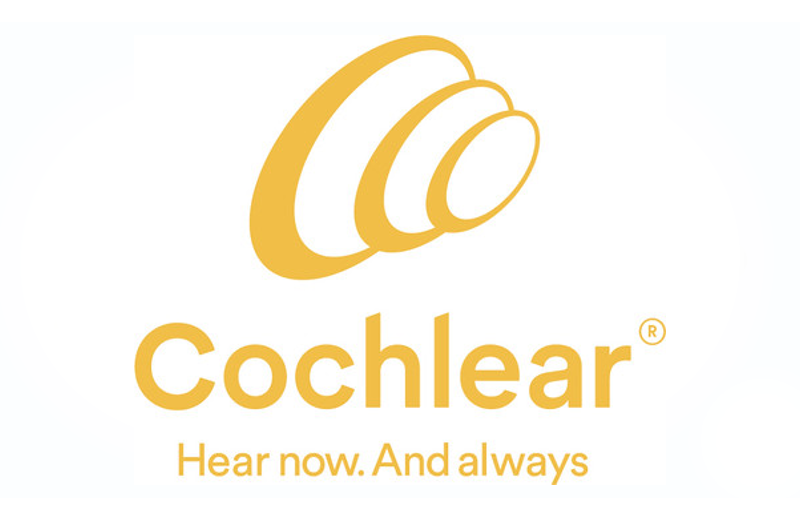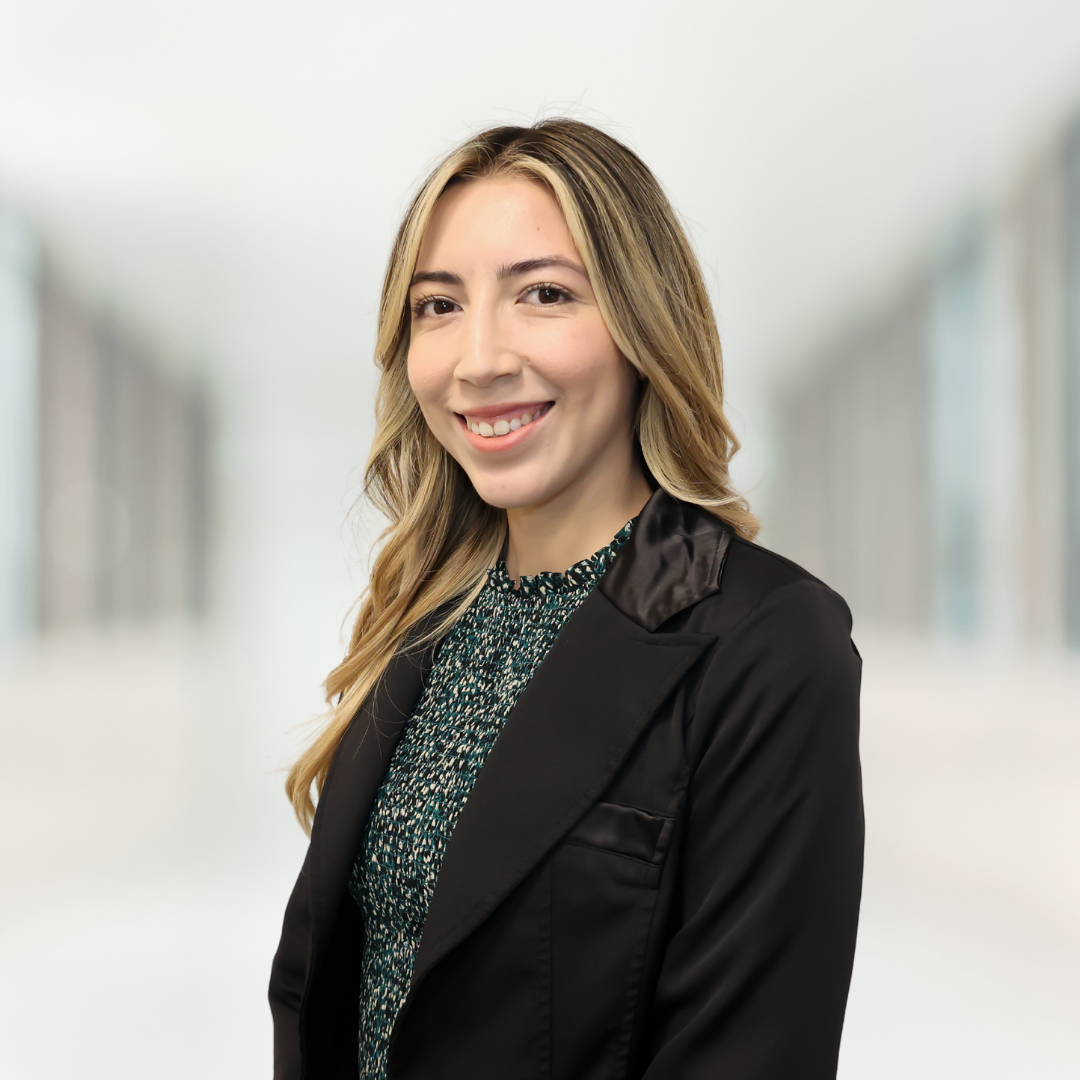MISSION
“Our community-based cochlear implant program strives to advance our patients’ quality of life, improve their ability to communicate with loved ones, and enhance their cognitive well-being. Our interdisciplinary cochlear implant team at PNI treats patients across the lifespan (from infancy to older adults) using evidenced-based practices, innovation, and a compassionate approach to care.”
Unveil a world of vibrant soundscapes through our transformative cochlear implant program.
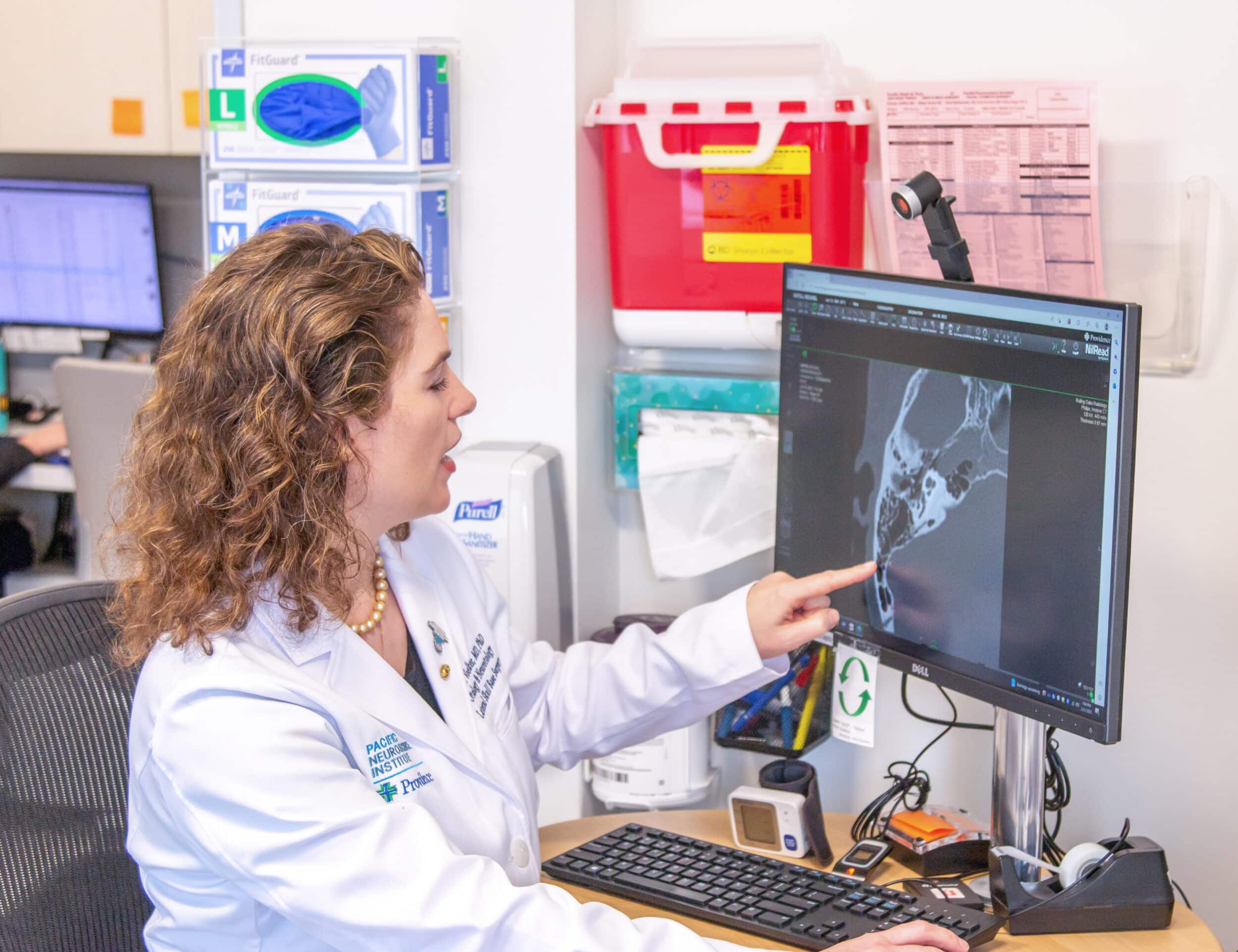
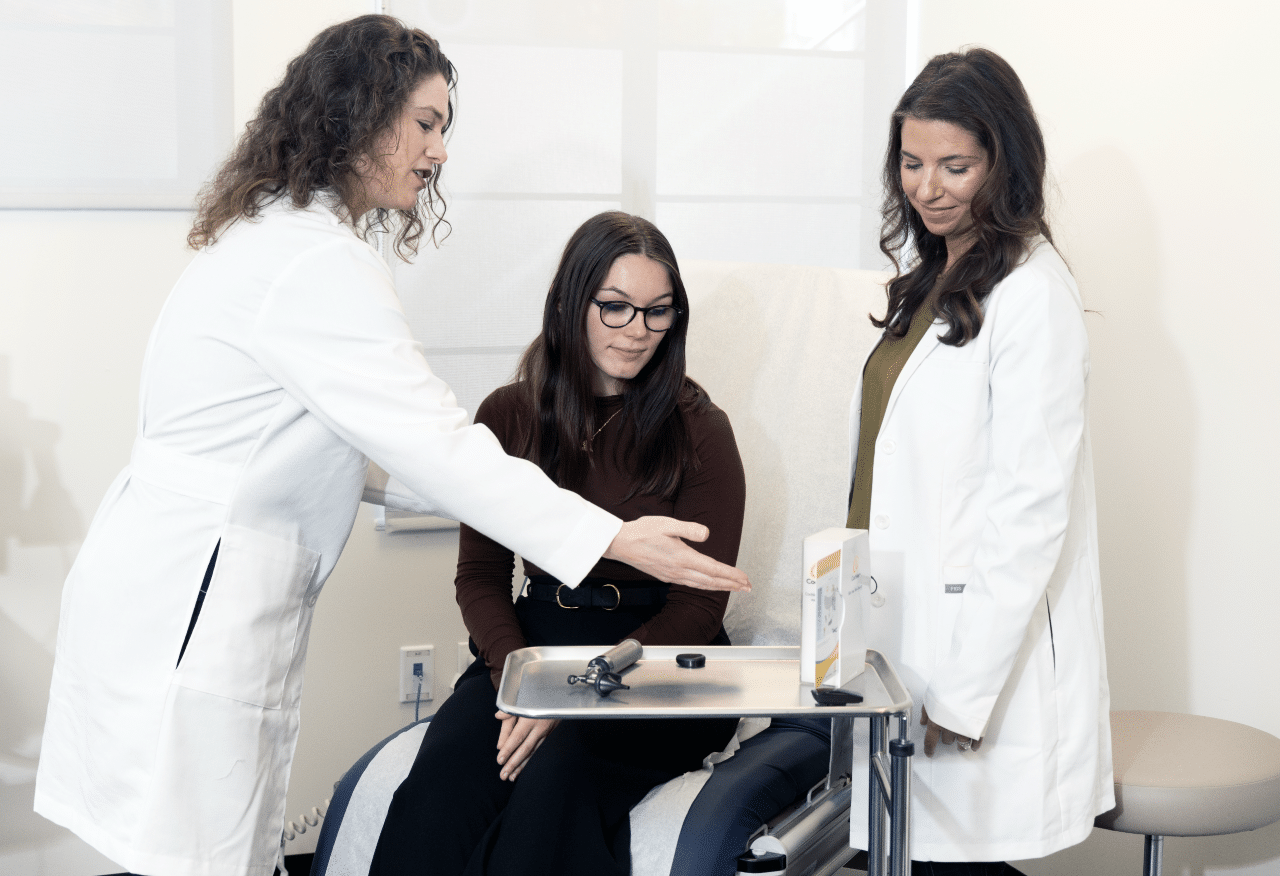
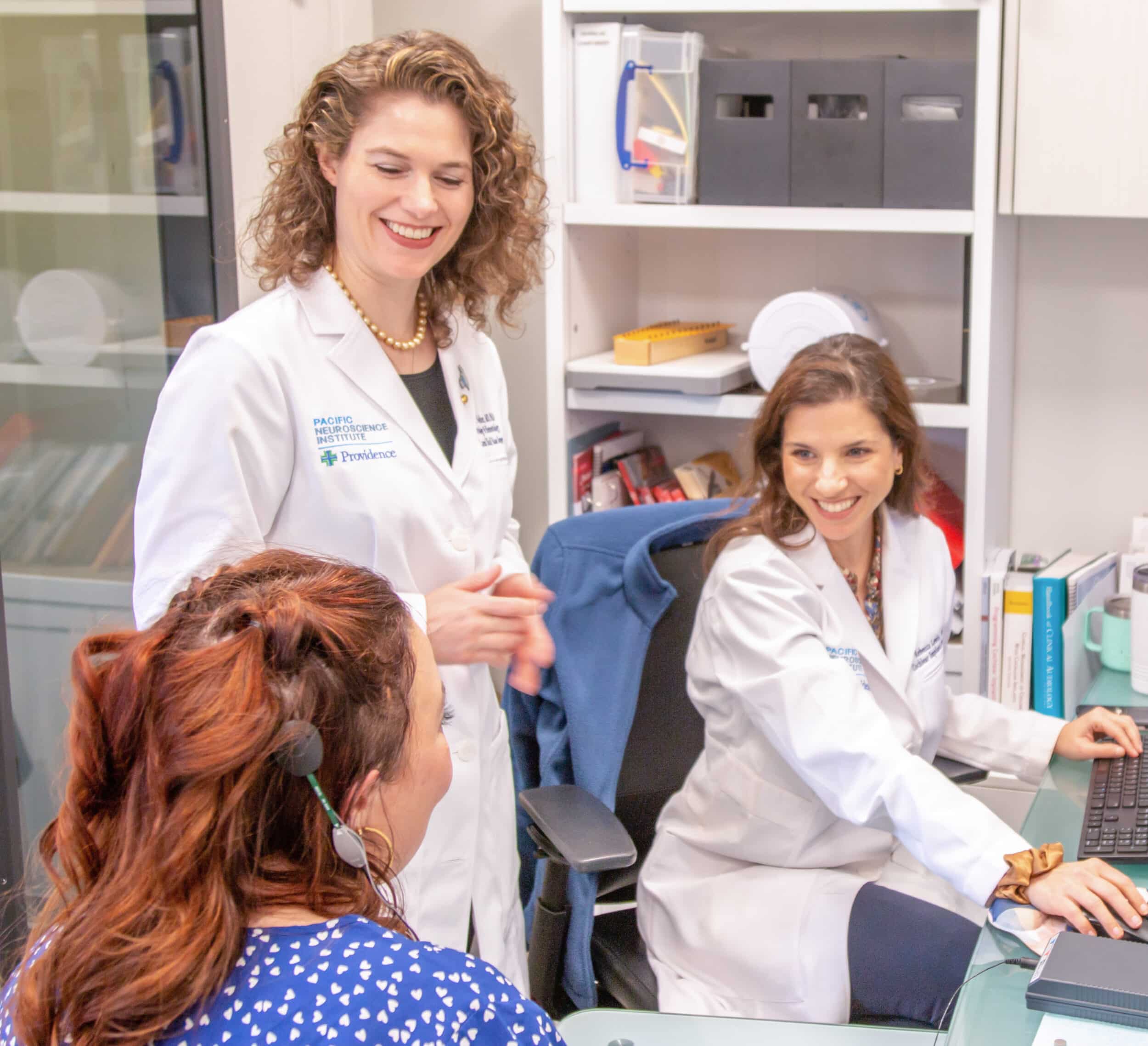
What is a Cochlear Implant?
- A cochlear implant is an electronic device that is implanted into the inner ear (the cochlea) and is used to restore hearing in patients who no longer benefit from traditional hearing aids or have hearing loss in just one ear.
- The evolution of cochlear implant technology development began in the 1960s and became FDA approved for adults in 1984 and for children in 1990. The cochlear implant is an electronic device that is implanted into the inner ear (the cochlea) and is used to restore hearing in patients who no longer benefit from traditional hearing aids or have hearing loss in just one ear. For children, cochlear implants are FDA approved for infants as young as 9 months old and can often be approved off-label at even younger ages (which is routine in other parts of the world). Candidacy for this miraculous device has dramatically expanded over the past decade offering better access to speech and language, environmental sounds, and music to those who are struggling.
Though a cochlear implant does not re-create normal hearing, it can give a hearing-impaired person auditory understanding of the world and help people understand speech again. While hearing aids amplify sound and deliver it to a damaged hearing system, the cochlear implant bypasses the damaged inner ear structures to deliver sound directly to the hearing nerve. Research and development have improved the sound quality of these devices and created smaller external speech processors over time. As a result, patients benefit from future advancements in technology without subsequent surgeries because the manufacturers ensure the new speech processors are compatible with older internal devices. It is also important to note that the cochlear implant is not a “quick fix” and involves time, patience, and practice to meet your listening goals. Our team will guide patients through their follow up programming visits and rehabilitation program.
Cochlear implants are covered by insurance policies including Medicare, Medicaid, private insurance carriers, and vocational rehabilitation. Candidacy criteria may be specified by specific insurance plans and our team can help guide a patient through that process.
Frequently Asked Questions
A cochlear implant is made up of equipment worn on the outside of the ear and equipment surgically placed inside the ear. During surgery, an incision is made behind the ear and the internal device is secured under the skin with the electrode array delicately threaded into the cochlea. The electrodes stimulate the hearing nerve which sends the auditory signal to the brain. The external equipment (sound processor) picks up sound and sends it across the skin to the internal device.
- External Hardware (includes microphone, speech processor, coil/cable and battery)
-
- The microphone captures sound in our environment.
- The speech processor converts the environmental sound into a digital signal.
- The signal is sent through the cable to the transmitting coil.
- Internal Receiver
-
- The signal is sent across the skin to the implant, where it is converted to electrical energy and decoded.
- Electrode Array
-
- The electrical energy is sent to the electrode array within the cochlea, where it stimulates the hearing nerve.
- Hearing Nerve
-
- The stimulation of the hearing nerve is perceived as sound in the brain.
Cochlear implants are recommended when a person cannot hear well with hearing aids or with significant hearing loss in just one ear. The Food and Drug Administration (FDA) has approved the use of cochlear implants for adults who meet specified criteria. Cochlear implant criteria have expanded over the past years! Shockingly only 5% of patients who would benefit from a cochlear implant receive them.
Your CI team will complete a comprehensive evaluation with optimally fit hearing aids to determine candidacy based on insurance and FDA criteria.
- Medicare criteria is the most conservative. Moderate to profound hearing loss and poor speech understanding in both ears. The ACI Alliance is lobbying to improve access for Medicare patients.
- Hybrid Candidacy: Patients who have good low frequency hearing and very poor high frequency hearing benefit from hybrid stimulation (acoustic and electric in the same ear).
- Single Sided Deafness/ Unilateral profound hearing loss: One normal hearing ear and the other ear with profound hearing loss.
- Asymmetric Hearing Loss: Hearing loss in both ears with poorer hearing in the ear to be implanted.
- Traditional criteria for patients 18 years old or older: Limited benefit from amplification defined by aided speech understanding in both ears with poorer understanding in the ear to be implanted.
- At PNI we are here to advocate for our patients if a cochlear implant is requested for “off label” use and authorization (non-FDA approved).
- A cochlear implant requires an in-tact auditory nerve to deliver the sound to the brain. Examples of where cochlear implantation may be appropriate include:
- Sudden sensorineural hearing loss
- Noise induced trauma to the ears
- Hearing loss associated with the aging process
- Ototoxic effects of certain medications
- Hearing loss due to meningitis or infection
- Inherited forms of progressive hearing loss
- Fractures of the skull base that impact hearing
- Severe otosclerosis (abnormal middle ear bone formation) involving the inner ears
Hearing loss is one of the leading causes of overall disability worldwide. Globally, approximately 466 million
adults and children (6%) have disabling hearing loss. This is projected to rise to 630 million by 2030. Hearing loss has a substantial impact on people’s quality of life.
Effects of untreated hearing loss on aging:
- Quality of Life
- Increased feelings of loneliness, isolation, and depression
- Less inclined to participate in activities they used to love and often “give up” participating in conversation with friends and family
- Cognitive Decline
- Hearing loss is associated with accelerated cognitive decline and dementia in older adults
- Depression
- Significant association between hearing impairment and moderate to severe depression
- Falls
- The brain uses sound cues to maintain spatial orientation and can home in on spatial orienting landmarks
- People with mild hearing loss of 25 dB or greater are 3x more likely to have a history of falling
- Every additional 10 dB of HL increases the chances of falling by 1.4 times the original risk
- Heart Health
- The inner ear is extremely sensitive to blood flow
- Studies have shown that a healthy cardiovascular system has a positive effect on hearing – conversely, inadequate blood flow and trauma to the blood vessels of the inner ear can contribute to hearing loss
- Hypertension
- Significant association between high blood pressure and untreated hearing loss.
- Can be an accelerating factor of hearing loss in older adults
- Diabetes
- Hearing loss is about twice as common in people with diabetes as compared to those without disease.
- Pre-diabetic adults whose blood glucose is higher than normal have 30% higher rate of hearing loss as compared to those with normal blood sugar
- Osteoporosis
- This is linked to the demineralization of the three middle ear bones which may contribute to or cause a conductive hearing impairment
Our dedicated cochlear implant team is made up of our CI surgeon, pediatric cochlear implant audiologist, CI coordinator, speech-language pathologists, auditory-verbal therapists, and we collaborate with social workers, geneticists, developmental pediatricians, educators, and psychologists. Together, we ensure each step of our process is executed for the child’s specific needs. Your family and child’s best interests are at the core of our process. We feel it is important to present all communication modality options including American Sign Language (ASL), Total Communication and Oral Communication. Every family and child’s experiences and needs are different which directly effects our combined efforts to develop the child’s communication journey. A full hearing and health evaluation is the beginning of the process. We collaborate with the child’s family, educators, and healthcare providers to develop our team’s approach for the child.
To determine if a child is a cochlear implant candidate, we first need to know the extent of his or her hearing loss. Children with mild to moderate hearing loss are not candidates for cochlear implants. Hearing aids and other forms of amplification can usually help those patients. Cochlear implants are used to help children who have limited benefit from hearing aids. Children with unilateral profound sensorineural hearing loss (or single sided deafness), asymmetric sensorineural hearing loss or some children who are plateauing in the language development with appropriately fit hearing aids are also cochlear implant candidates.
The earlier your child receives an implant, the greater the potential is that he/she will develop listening/speaking skills at the same level as their normal hearing peers. Our multidisciplinary cochlear implant team has the ability and resources to help your child make as much progress as possible with listening/speaking skills.
Finally, for your child to be successful with their cochlear implant, your family must make this strong commitment together. We know that you are the most important part of the process for any child.
General Criteria:
- At least 9 months of age; however, we can request cochlear implantation “off label” at earlier ages
- Limited benefit from well fitted hearing aids that are worn all the time
- Minimal progress in auditory development and speech and language development
- Children whose families are motivated to follow through with therapy to support language learning and full-time cochlear implant device use
Older Children Considerations:
- Mode of communication
- Consistent use of hearing aids
- Hearing aids are no longer providing adequate benefit
- Poor speech understanding with properly fit hearing aids
- Motivation to follow through with therapy and full time CI use
- Understanding the benefits and limitations of cochlear implant use
Experience and Expertise:
Our team of professionals have extensive knowledge in diagnosing and treating complex hearing disorders.
Collaborative Care:
Multidisciplinary approach to comprehensive care is the core value of the PNI. Our cochlear implant surgeon, specialized CI audiologist, vestibular audiologists, brain health neurologists, auditory verbal therapy and speech therapy partners meet routinely to discuss and tailor treatment for each individual patient.
Accessible Care:
We can deliver super specialized care at the community-based level. We can deliver same-day services with appointments for audiology, otology, vestibular assessment, vaccine administration, and often imaging.
Support:
We have an in-house team to help schedule your visits and ensure a timely, seamless process where the patient feels well informed and part of the decision process. Our goal is also to create a PNI cochlear implant recipient community where we host gatherings and classes that will range from hearing aid technology, cochlear implants to speechreading and communication strategies.
Innovation:
Our team is involved in research projects to push the envelope of cochlear implant care. We apply the latest research and offer and forward-thinking approach to care.
Second Opinions:
Our team of experts can offer review of your medical records and meet via in person or virtual platforms. Hearing health issues can feel complex, especially when making a difficult treatment decision. Getting a second opinion can help you make an informed decision about your care.
Cochlear implants are covered by insurance policies including Medicare, Medicaid, private insurance carriers and vocational rehabilitation. Candidacy criteria may be specified by specific insurance plans and our team can help guide a patient through that process.


